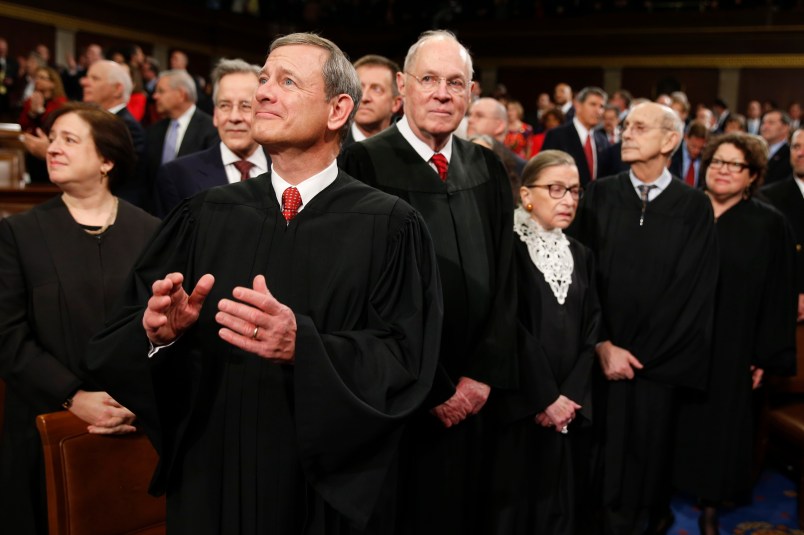The Supreme Court said Monday it would not take up an appeal of a blockbuster case that struck down parts of Texas’ voter ID law – at least at this stage of the proceedings. Chief Justice John Roberts said the court would rather wait for a separate phase of the case to conclude before considering whether to take it up.
A lower court is in the process of reconsidering the question of whether the voter ID law was passed with discriminatory intent, which a federal judge is slated to do after an appeals court ruled it had an discriminatory effect.
“Petitioners may raise either or both issues again after entry of final judgment. The issues will be better suited for certiorari review at that time,” Roberts said in a statement that accompanied the denial of Texas’ petition.
The 2011 law, considered the strictest in the nation, was initially blocked twice by the so-called pre-clearance process, a Voting Rights Act requirement that Texas and other states get federal approve for voting protocol changes. The process was gutted in a 2013 Supreme Court decision, and Texas has since been able to implement the law.
However, a lawsuit brought by civil rights groups and supported by the Department of Justice under President Obama alleged that the law was unconstitutional and a violation of the Voting Rights Act. A district court agreed, and struck down the law on numerous grounds. The full 5th U.S. Circuit Court of Appeals — the most conservative court in the nation — upheld the discriminatory effect finding and ordered the law softened for the 2016 election. It, however, vacated other parts of the ruling and asked the lower court to re-examine the discriminatory intent finding under a new set of facts.
That next step in the case has been delayed for a few weeks after the DOJ, in the hours after President Trump’s inauguration, asked for a delay in the proceedings to give time to the new administration to decide how it would like to move forward on it.







Race riots incoming.
I can deal with conservatives that are guided by a true understanding of the Constitution and the core values of the country…
On the other hand, the Trumpistas will always be in the minority and on the wrong side of any judicial argument…
They’re waiting for Trump to nominate Judge Judy, According to Trump she’s very, very smart.
Once the demagogue appoints Cruz it will go to the top of the calendar.
Translation: Not enough votes on SCOTUS to back Texas.